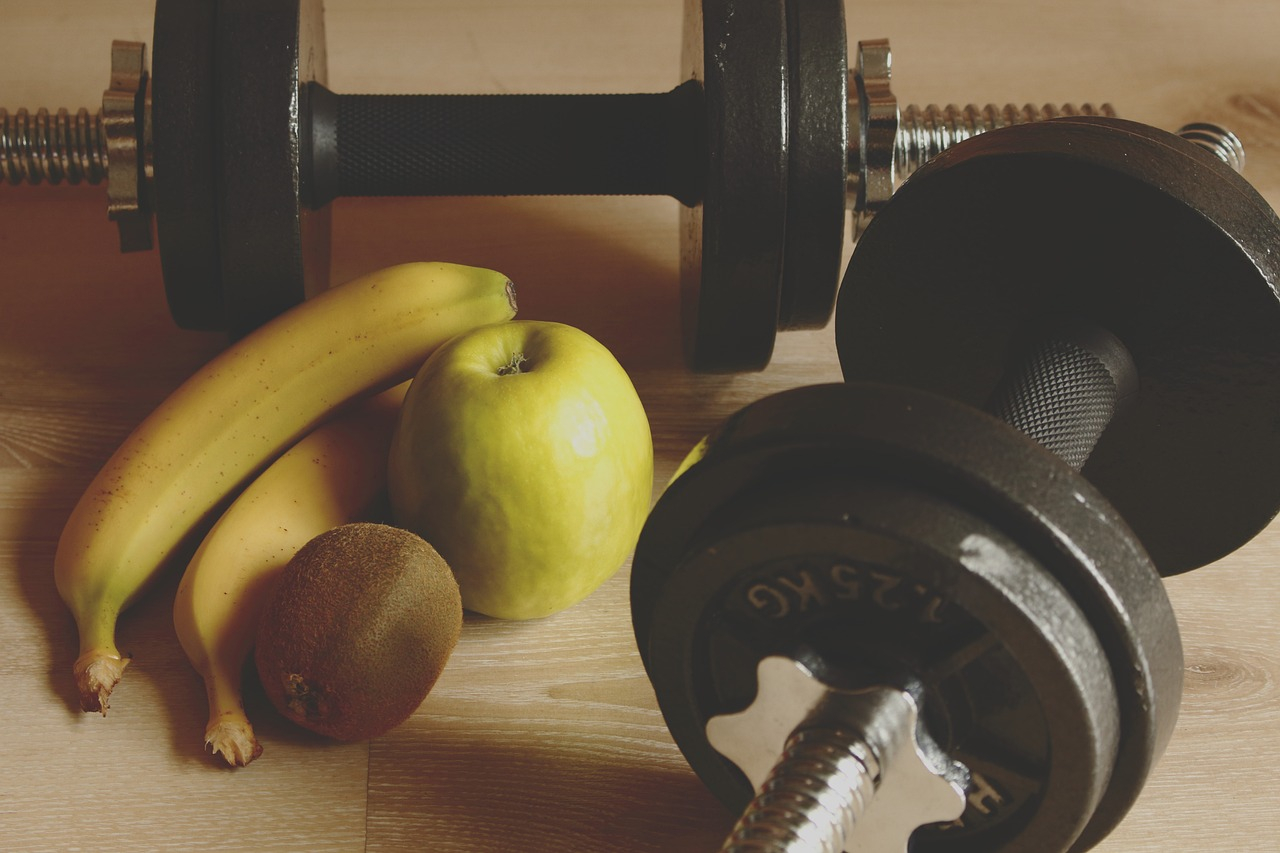Ultimate Guide: How to Build Muscle Mass
Packing on more muscle mass, getting toned and well-defined muscles – isn’t this something you’ve always wanted? The “Ultimate Guide: How to build muscle mass” is just the ticket you need. The guide provides insider knowledge and actionable tips on proper nutrition, optimal exercise routines, and efficient recovery techniques, all tailored to your muscle-building journey. It addresses common doubts and dispels myths, bringing you one step closer to achieving your fitness goals.
Understanding Muscle Mass
Muscle mass refers to the physical size of your muscles. It’s a component of your total body mass, which also includes bone, water, and fat. Muscles are responsible for every movement you make, from lifting a cup to running a marathon.
The biology of muscle growth
At a cellular level, muscle growth is all about repairing the tiny tears that occur in your muscles when you work them out. Your body responds to this damage by increasing the size and number of muscle fibers. This process is called hypertrophy, and it’s the primary mechanism by which muscles grow.
Difference between muscle mass and muscle strength
While they’re related, muscle mass and muscle strength aren’t the same thing. Muscle strength refers to the amount of force a muscle or group of muscles can exert, while muscle mass refers to the physical size of your muscles. Building muscle mass can increase your strength, but it’s also possible to increase your strength without significantly increasing your muscle size.
Why muscle mass is important
Muscle mass is vital not only for athletes looking to improve their performance but also for everyone else. Having more muscle mass increases your basal metabolic rate or the number of calories your body burns at rest. It can also improve your physical appearance, and enhance your mobility and overall quality of life as you age.
Required Nutrition for Muscle Building
Nutrition plays a significant role in muscle building. It gives your body the energy it needs to work out and the nutrients it needs to repair and build new muscle tissue.
Role of protein in muscle building
Protein is essential for muscle growth. It provides the building blocks, known as amino acids, that your body uses to repair and build new muscle tissue after a workout. Eating sufficient protein throughout the day can help you maintain and build muscle mass.
Importance of carbohydrates and fats
Carbohydrates and fats are also vital for muscle building. Carbohydrates provide the energy your muscles need to work out, while fats support numerous functions in your body, including nutrient absorption and hormone production, both of which are important for muscle growth.
Vitamins and minerals for muscle health
Certain vitamins and minerals play key roles in muscle health and growth. For instance, vitamin D plays a significant role in muscle function and strength, while magnesium supports muscle contractions. Ensuring you get a wide range of vitamins and minerals in your diet can support your muscle building efforts.
Hydration and muscle mass
Staying hydrated is vital for muscle health. Water helps transport nutrients to your muscles and removes waste products, both of which support muscle growth and recovery.

Diet Planning for Muscle Gain
A well-planned diet can significantly boost your muscle gain efforts. It’s not just about eating more. You need to eat the right balance of nutrients to support muscle growth and recovery.
Devising a balanced diet plan
A balanced diet for muscle gain should be rich in protein, carbohydrates, and healthy fats. You should also aim to include a variety of fruits, vegetables, and whole grains to ensure you’re getting all the vitamins and minerals your body needs.
Calorie intake for muscle gain
Gaining muscle mass requires a calorie surplus, meaning you need to eat more calories than your body burns. This provides the energy your body needs to repair and build new muscle tissue.
Pre and post workout meals
Your pre-workout meal should include protein and carbohydrates to fuel your workout. Post-workout, focus on protein and some carbs to aid recovery and muscle growth.
Periodic review and adjustment of diet plan
Nutrition needs can change over time, particularly as you gain muscle mass. Regularly reviewing and adjusting your diet plan can ensure you’re giving your body what it needs to keep growing.
Training for Muscle Mass
For optimal muscle growth, you need a well-rounded training program that includes resistance training, cardio, and flexibility exercises.
Importance of resistance and weight training
Resistance and weight training are critical for muscle growth. They create the muscle damage that triggers your body’s repair and growth processes.
Training volume and frequency for muscle growth
The more often and intensely you train, the more you stimulate muscle growth. However, it’s important not to overdo it, as this can lead to overtraining and injuries.
Impact of compound exercises
Compound exercises, which work multiple muscle groups at once, are particularly effective for muscle growth.
Importance of proper form and technique
Proper form and technique are essential to ensuring effectiveness and preventing injuries.
Rest and recovery in muscle building
Rest is just as essential as your workouts. This is when your muscles heal and grow, so make sure to allow enough time for recovery.

Supplementation for Muscle Mass
Supplements can support your muscle building efforts, but they should not replace a healthy diet and regular exercise.
Role of creatine in muscle gain
Creatine can significantly boost muscle strength and size by improving your performance in high-intensity, short-duration exercises.
Effect of branched-chain amino acids (BCAAs)
BCAAs can stimulate muscle protein synthesis and reduce muscle soreness, helping you recover faster from your workouts.
Benefits and drawbacks of protein shakes
Protein shakes can provide a convenient source of protein, particularly post-workout. However, they should not replace whole foods in your diet.
Essential multivitamin supplements
Multivitamin supplements can fill in any nutritional gaps in your diet, ensuring your body has what it needs to build muscle.
Role of Sleep in Muscle Building
Sleep is crucial for muscle recovery. During sleep, your body produces growth hormone, which promotes muscle growth.
Effects of sleep on muscle recovery
Insufficient sleep can impair muscle recovery and growth. It can also hamper your workout performance, reducing the effectiveness of your training sessions.
Recommended sleep duration for muscle gain
Aim for 7 to 9 hours of sleep each night to support muscle recovery and growth.
Quality of sleep and muscle health
It’s not just the quantity, but also the quality of sleep that matters. Deep, uninterrupted sleep is the most beneficial for muscle recovery.

Tracking Progress and Setting Goals
Setting and tracking your goals can help keep you motivated and on track.
Measuring muscle mass
There are various methods to measure muscle mass, including body composition scales, skinfold calipers, and DEXA scans.
Setting realistic goals
Setting realistic, achievable goals can help keep you motivated and focused. Consider both short-term and long-term objectives.
Monitoring and adjusting your program for continuous improvements
Regularly review your progress and adjust your program as needed to ensure you’re continuously challenging your muscles and making progress.
Common Mistakes in Building Muscle Mass
There are several common mistakes people make when trying to build muscle mass.
Overtraining and under-recovering
While it’s essential to train hard, overtraining can lead to injuries and hinder your progress. Make sure you’re giving your muscles enough time to recover.
Neglecting nutrition
Failing to get the nutrients your body needs to build muscle can greatly hinder your progress.
Lack of variation in workout routines
Doing the same routine all the time can lead to stagnation. Vary your workouts to continually challenge your muscles.
Ignoring the importance of rest and sleep
Rest and sleep are vital for muscle recovery and growth. Ignoring their importance can hinder your progress.

Building Muscle Mass for Different Body Types
Everyone has different genetics, and some people find it easier to gain muscle than others.
Understanding body types: Ectomorph, Mesomorph, Endomorph
Ectomorphs are typically slim and may struggle to gain muscle, mesomorphs usually have a medium build and can gain and lose weight relatively easily, and endomorphs tend to gain weight easily and may have a harder time losing it.
Tailoring diet and exercise based on body type
Your body type can affect how you respond to diet and exercise, so it’s important to tailor your approach to your unique needs and capabilities.
FAQs on Muscle Building
There are many common questions when it comes to building muscle.
How long does it take to build muscle?
The rate at which you gain muscle varies greatly based on factors like genetics, diet, and training regimen. However, with consistent effort, most people can start to see noticeable changes within a few weeks to a few months.
Can you gain muscle mass without gaining fat?
With careful diet and exercise planning, it is possible to gain muscle without significant fat gain.
How much protein is needed to build muscle?
The general recommendation for those trying to build muscle is to consume around 0.6 to 1 gram of protein per pound of body weight per day.
What are the safe ways to use steroids for muscle gain?
Steroid use can have severe health risks and is not recommended. Instead, focus on natural methods like proper diet, exercise, and sleep.
Can I build muscle mass without going to a gym?
Yes, you can build muscle with bodyweight exercises, resistance bands, and equipment like dumbbells and kettlebells. The key is to challenge your muscles consistently.

